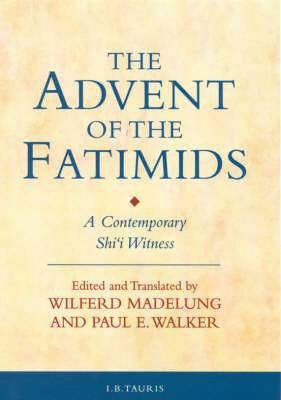This work is a personal memoir composed by Ibn al-Haytham, a Shi‘i Muslim scholar from North Africa, who records the details of his meetings and conversations with two Ismaili leaders who spearheaded the Fatimid revolution in 909. It was as a result of this revolution that the Ismaili Imams were installed to power as Fatimid caliphs in the Maghrib. Ibn al-Haytham’s memoir – the Kitāb al-Munāẓarāt (The Book of Discussions) – provides an unparalleled insider’s view of the early Ismaili da‘wa or mission in action, and it adds enormously to out understanding of the foundations of the Fatimid state and the difficulties confronted by its original leaders. As such, it is a unique document in the literature of early Islamic revolutionary movements, as much as it represents an invaluable source on the history of the FatimidsMajor Muslim dynasty of Ismaili caliphs in North Africa (from 909) and later in Egypt (973–1171) More and medieval Islam. Now available in paperback, this critical edition of the original Arabic text is accompanied by a complete annotated English translation.
Preface
Acknowledgments
Introduction
1. The Historical Background
2. Ibn al-Haytham and the Historical Sources
3. The Edition of the Arabic Text
4. The Translation and Notes
Kitāb al-Munāẓarāt (English Text)
Bibliography
Index
Kitāb al-Munāẓarāt (Arabic Text)
‘It makes very exciting reading, not only for specialists…but for Islamicists and historians at large.’
– American Journal of Islamic Social Sciences
Professor Wilferd Madelung was for twenty years the Laudian Professor of Arabic at the University of Oxford and is at present a Senior Research Fellow at The Institute of Ismaili Studies in London. Paul E. Walker is an historian of ideas, at the University of Chicago. An authority on Fatimid Ismaili history and thought, he is the author of Abū Yaʿqūb al-Sijistānī: Intellectual Missionary and Ḥamīd al-Dīn Kirmānī: Ismaili Thought in the Age of al-Ḥākim.
An historian of ideas with a focus on Mediaeval Islamic History, Paul E. Walker has taught at McGill University, Columbia University and the University of Michigan. For several years Dr Walker was the Director of the American Research Centre in Egypt, and is currently a Visiting Scholar with the University of Chicago’s Center for Middle Eastern Studies. He has authored and edited many books on Fatimid history and the formative period of Ismaili thought including Early Philosophical Shi‘ismSee Shi‘a. (Cambridge University Press, 1993), The Wellsprings of Wisdom: A Study of Abū Yaʿqūb al-Sijistānī’s Kitāb al-Yanābiʿ (University of Utah Press, 1994), Abū Yaʿqūb al-Sijistānī: Intellectual Missionary (I. B. Tauris in association with The Institute of Ismaili Studies, 1996), Ḥamīd al-Dīn al-Kirmānī: Ismaili Thought in the Age of al-Ḥākim (I. B. Tauris in association with The Institute of Ismaili Studies, 1999), with Wilferd Madelung, An Ismaili Heresiography (Brill, 1998) and The Advent of the Fatimids: A Contemporary Shi’i Witness (I. B. Tauris in association with The Institute of Ismaili Studies, 2000). Most recently, Dr Walker is the recipient of the 2001 Guggenheim Fellowship to study the Imam-Caliph al-Ḥākim.

